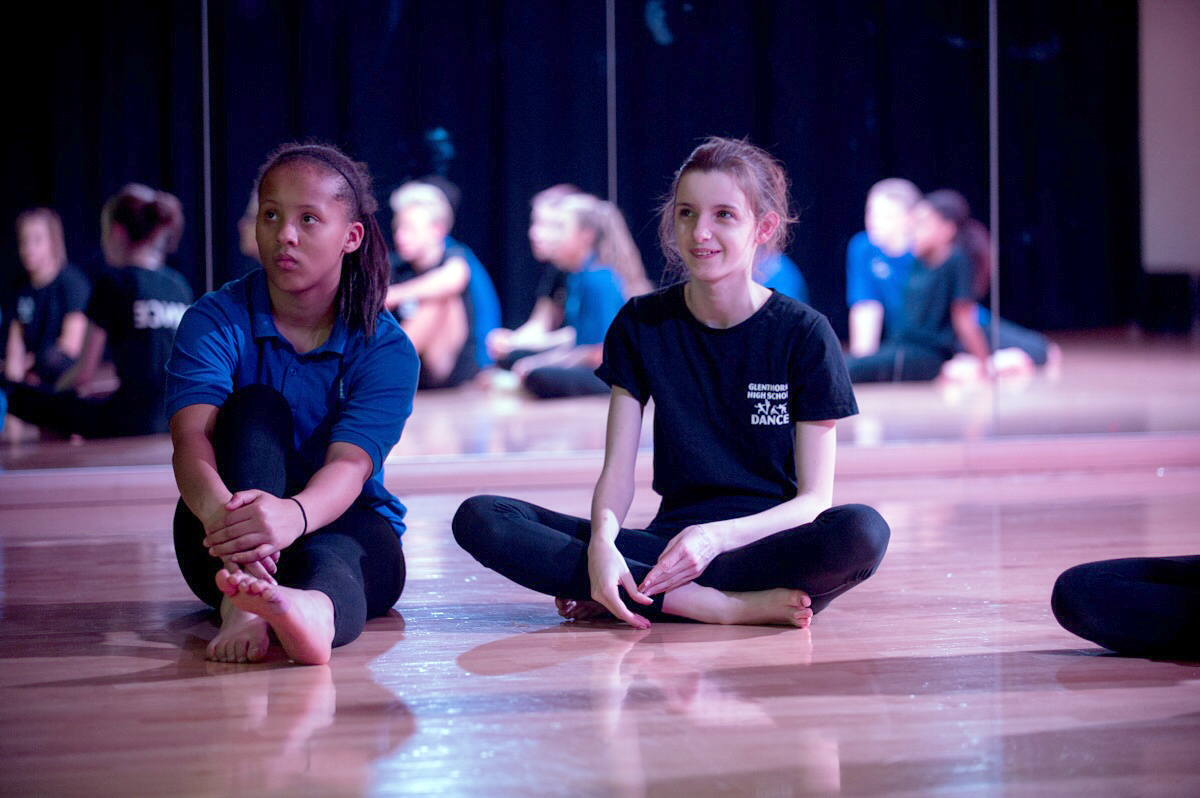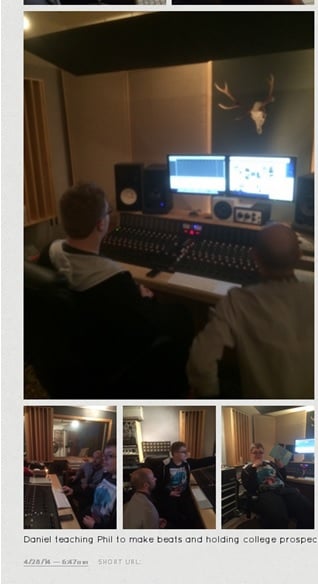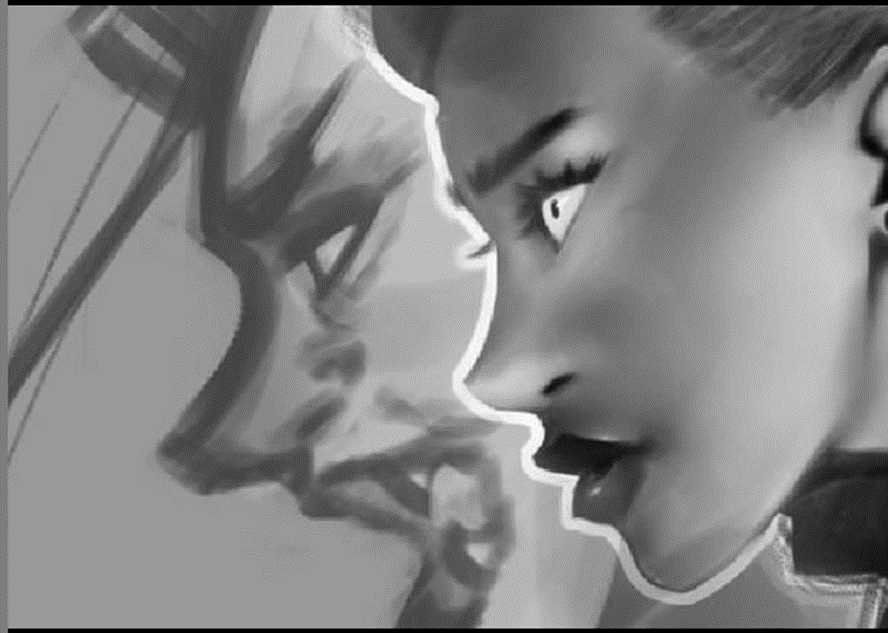
Bronze for a whole year group
BY: Guest Writer
01 Dec 2015
As a Performing Arts Specialist School, the arts are highly valued by all subjects and students at Glenthorne High School. We have embedded Bronze Arts Award into the Year 7 curriculum, with a cohort of around 250 students. There are nine trained Arts Award advisers, four from Drama, four from Music and one from Dance, to help oversee the running of Arts Award as well as deliver workshops for the different sections.
Planning
At the beginning of the autumn term we introduce Year 7 students to Arts Award in an assembly. We show them a video of Year 8 students who achieved their awards in the previous year talking about what Arts Award means, what they did and what they think they have gained from achieving it. This allows Year 7 students to hear about a range of experiences, and gives the Year 8 students an opportunity to take pride in the work they completed during their Arts Award by sharing it with others. We have produced many resources to support students with collecting their evidence. There are templates and guidelines that students can follow, or they can then use these as a basis to create their own portfolio evidence. On our VLE (virtual learning environment) we have an Arts Award site which explains to students what they will be doing for each section of the award and what evidence they need to collect for their portfolios.
Bronze Award sections can be delivered and completed in any order. We have chosen to work through the parts by focusing first on Part C, then Parts A, B and D.
Part C – arts inspiration
This part is delivered through Year 7 ICT lessons as part of a research project that students have to complete over the first half of the autumn term. Students are taught how to carry out research and then complete homework tasks to research their arts inspiration, before creating a presentation on their chosen artist, which they share with the rest of the class.
Top tip: Even though the students do not have to share their arts inspiration in order to meet the Bronze criteria, it is always helpful for students to see who each other are inspired by. You could set this up by each student presenting to the whole class, or they could present in small groups. Allow time for questions at the end, so students can talk openly about why they have been inspired.
Part A – explore the arts as a participant
Students complete this section through taking part in our Creative Arts Evening, which takes place at the beginning of December. This event is a celebration of the arts across the school and all Year 7 students perform at least two songs, which they learn during their music lessons with some students also involved in other acts. Before the event, students write up a planning sheet of what they are expecting from the experience, what they are looking forward to and what they need to improve. After the Creative Arts Evening they write an evaluation of what they think they did successfully and what they enjoyed about performing. Both pieces of evidence, along with a film of the evening, is put into students’ portfolios. The Year 7s usually find this part exciting and a challenge as many have never performed in front of an audience before.
Part B – explore the arts as an audience member
As a Performing Arts Specialist school, we are very lucky that we are able to take the whole Year 7 cohort to the theatre. This year we went to the Unicorn Theatre to see The Nutcracker and The Mouse-King. After the performance, students write a tweet (140 characters on twitter cards) of their initial thoughts of the production. In their drama lessons, they then take part in a workshop on ‘What makes a good theatre review?’ and each group discusses what they liked and didn’t like about the performance. This is a practical workshop and students are able to share their thoughts through individual still images and group presentations. They then write their theatre review for homework, which is included in portfolios as evidence, alongside students’ filmed presentations.
Top Tip: After students have completed their theatre review, we always get them to peer assess each other’s work as another way to share it, before we collect it in to mark. We ask the students to write one WWW (what worked well) for their peers work and one EBI (even better if).
Part D – arts skills share
In the past, this section has been carried out in drama or dance lessons. This is usually the last part of the Bronze Award we deliver, and it is completed at the beginning of the summer term. By this stage in the year, students have gained skills in all art forms and are able to share this knowledge with a small group of students. Skills sharing activities take place in groups of five or six students, so that less confident students do not feel pressured to speak in front of a whole class. Groups have one week to plan what they are going to do, and are given a template to follow. Many students choose to teach their group a dance or a song and some students teach a workshop on a skill they might have learnt in a drama lesson. When the students are sharing their skills, we take pictures of each individual which they can later annotate and use to inform their evaluation. All of the planning, delivery and reflection of the skills sharing activity goes into students’ portfolios.
Top tip: During the planning stages, make sure the adviser circulates and checks what skills the students are sharing. This helps to make sure that all students have thought about the challenge properly, and the adviser can assist any students who are struggling.
Preparing for assessment and collecting evidence
Most of our students present their work in a folder, and we have found this easy to manage. However, our school is moving towards sharing work digitally, so we have created an Arts Award site where students have their own folder to store their evidence. We have just started using Google Drive with our Silver Award students and are considering ways of using it with our Bronze students in future. As we complete the different parts of the award throughout the year, there are deadlines for different sections. This makes it easy to identify which students have evidence outstanding. When it comes to putting the portfolios together, the Year 7 form tutors and teachers help by making sure that all the evidence is in students’ folders. The Arts Award advisers will then check the evidence and complete the 'enrolment and marks' spreadsheet.
Top tip: Make sure you get form tutors and the head of year on board to promote the activities and get the students excited. It also helps when you come to collecting in the evidence that the tutors have knowledge about what they are looking for in portfolios.
Celebration – the Arts Award Oscars
This was the first year we had a celebration evening for the students who completed their Arts Award. We had students sharing their skills as well as a guest speaker who talked about his experience of the arts. We invited all parents/ guardians to the event so they could see what their child had achieved, and handed out the Arts Award certificates at the end. The event was very successful and exciting for students, and it also encouraged students to continue with Arts Award and progress to higher levels. We now have about 10 Year 8 students who are working towards their Silver Arts Award.
We have found that many of the students who had never had anything to do with the arts took more of an interest by doing Arts Award. Students that had never performed in front of an audience before gained more confidence and leadership skills. Across all lessons, many Year 7s started to come out of their shell because of their experience of doing Arts Award.
Related posts
BY: Guest Writer
BY: Guest Writer



Comments & Replies